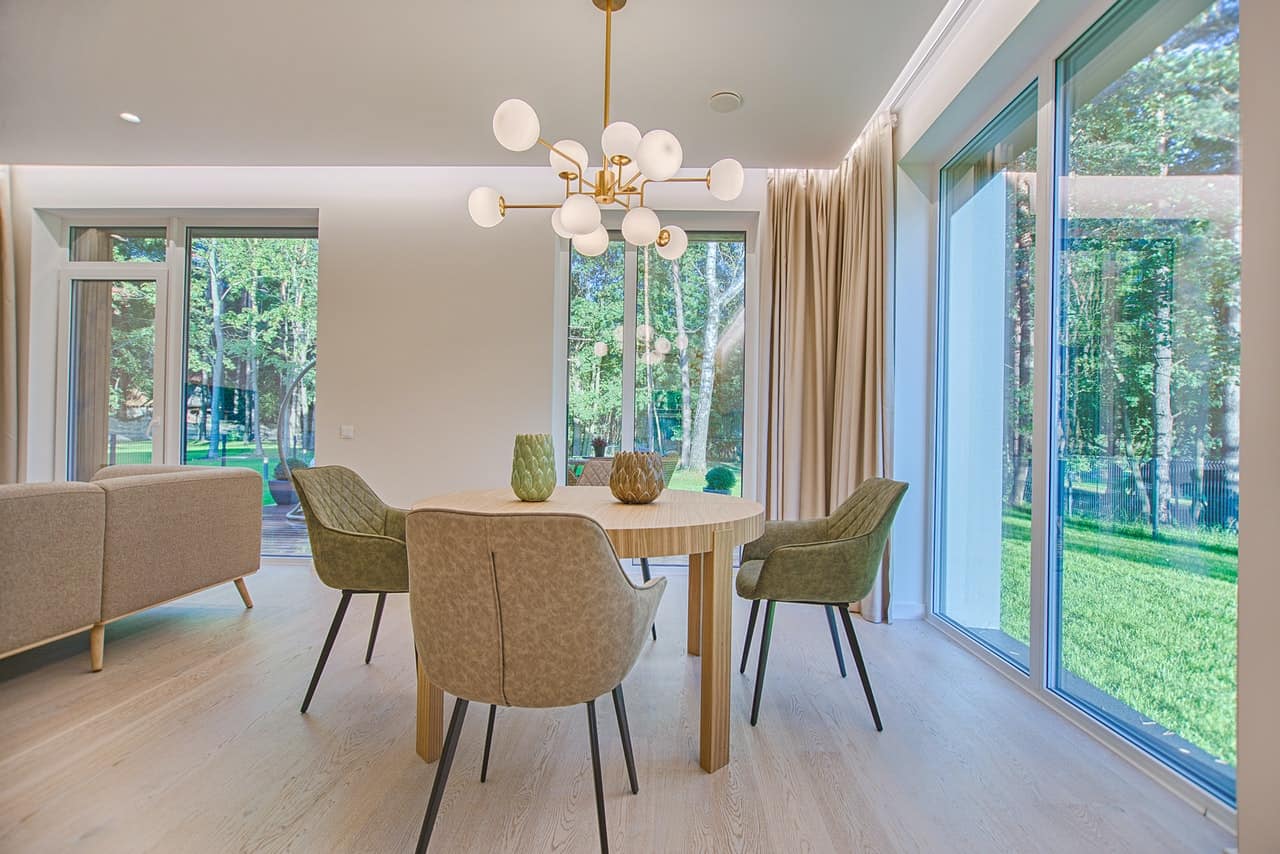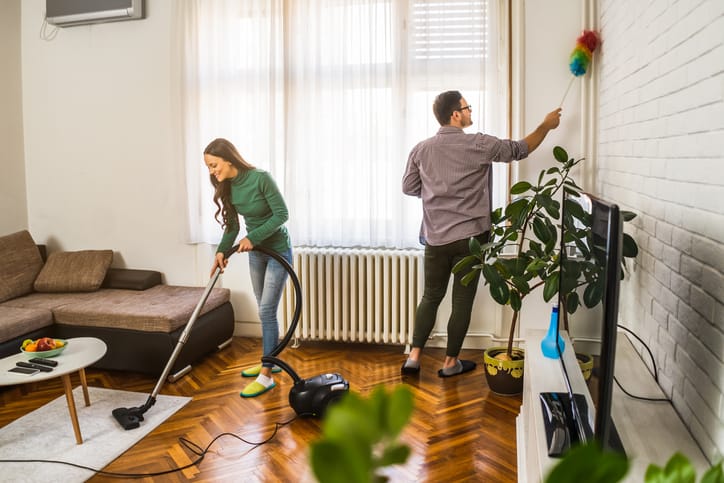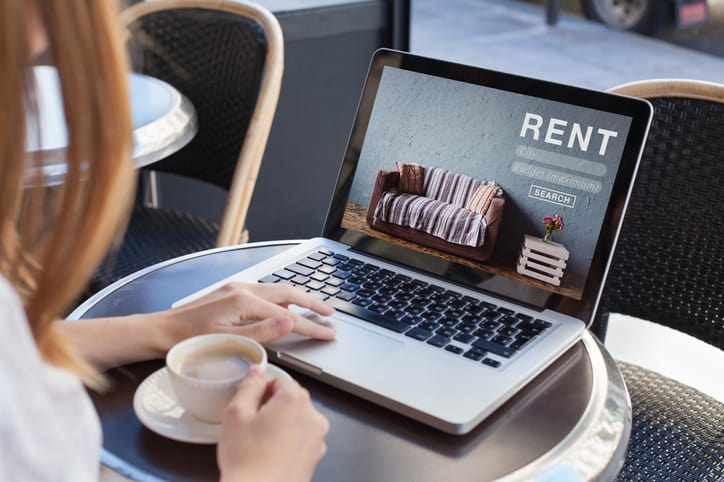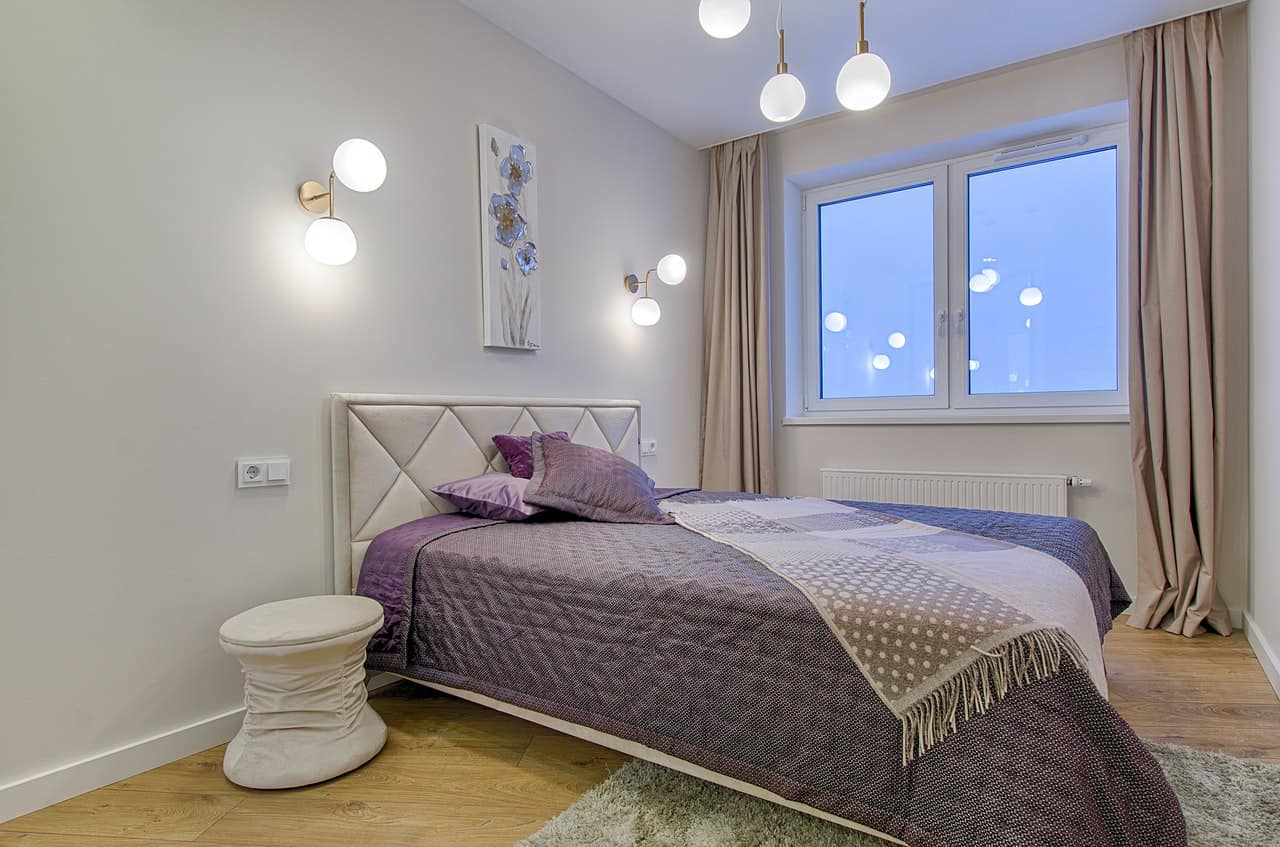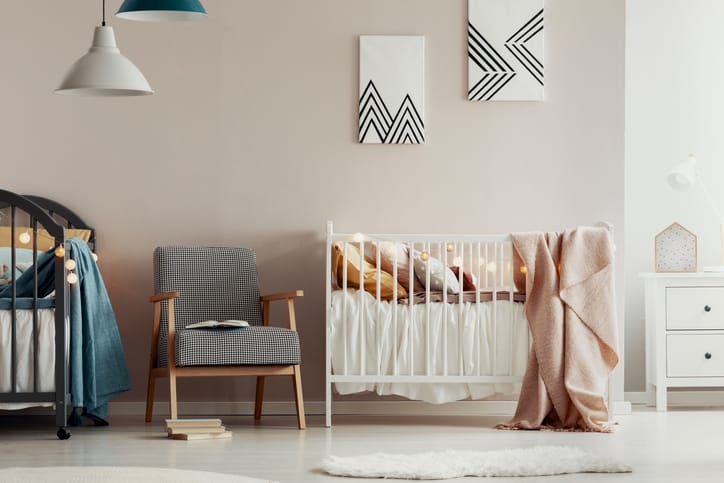January 10, 2022 at 1:13 pm
·
Justin Becker ·
Comments Off on How to Reduce Dust in Apartment
Fighting against dust can sometimes feel like a losing battle. Even if you don’t live in an area with a lot of dust, your apartment will need some attention in that area every week or so. However, it may feel like the soil particles start gathering again the second you’re done with that chore.
Can You Keep Dust Out of Your Apartment?
There are many reasons why some people feel that apartments are better than houses, and dust control is one of them. A house means that you usually have more space to dust and clean. Most houses also have a lot more places where the dust can get in, as opposed to an apartment.
On the other hand, if your apartment or condo is in an older building, the heaters and air conditioning system might make the air stale and dry. A deep clean will hopefully get everything dust-free and fresh, but you don’t want all your efforts to go to waste.
Before you set aside a day for that cleaning or break out the vacuum cleaner, check out the steps below. They just might be the answer to reducing the dust in your apartment for the long run.
How to Reduce Dust in Apartment
Dust in your apartment isn’t just made up of soil particles or other outside elements. It’s important to keep in mind that indoor dust also includes dead skin cells, pet dander, and many other substances that come in through the air ducts.
The following tips can help to keep your apartment dust free:
1. Change the Bedclothes Weekly
If you have a pet, you’ll definitely look into ways on how to puppy-proof your apartment. However, many people may not consider staving off the various dust components in the same space.
Even if you have an air purifier in just the right place, dust mites can get into the bedding, mattresses, and sheets. The longer the bedclothes stay there without changes and washes, the more chances you have of dust mites and excessive dust to accumulate.
The accumulating dust particles on your bedding will not only reduce air quality, but it will also lower the quality of sleep or rest you get in that bed. The mites, dead skin cells, and stray hairs will make for an itchy experience. Plus, when you get out of bed and walk around your apartment, you’ll be spreading that dust and debris everywhere.
The opposite is also true; if you get into bed without showering first, or at least changing into night clothes, the dust from the rest of your home will get into your sheets.
At the end of the day, all your bed clothes or bed linen needs a thorough wash at least once a week. If you’ve just returned after a trip (even for the weekend), make sure to change the bedding completely before hopping into bed.
2. Clear Up the Clutter
A lot of frugal apartment dwellers might hold on to knickknacks, decoration pieces, and even broken down materials for the long run. These might be difficult to reach, so dusting them is a double chore. At the same time, they’re probably the first places where the dust appears.
One of the main reasons for excessive dust is holding on to clutter.
Clutter will Collect Dust
While you can control the buildup of dust particles by regular dusting and investing in air purifiers, all the air filters in the world wouldn’t make this job easier. The fewer items you have out on display, the easier it will be to clean and maintain cleanliness.
This is especially true of textiles and fabrics as they tend to collect dust in spite of having an air purifier in the room. They’ll also produce dust as textiles fibers attract dust particles and human skin flakes.
When you’re choosing a new home, it might be difficult to decide between a mobile home vs. apartment. Do consider the space issue when making your final decision; even a few extra items in a small space will add to a cluttered look.
3. Go for Hardwood Flooring or Tiles
If you’ve ever swept a carpet with a broom, you know that these things trap dust like nothing else. No matter how attractive a carpet might be, do your air purifier a favor and get hardwood flooring or simple tiles. You’ll be thanking yourself when it’s time to sweep up any debris, clean up spills, or perform a deep clean of the home.
Consider Area Rugs
There are people who want the feel of a carpet or rug under their feet in their own homes. Instead of wall-to-wall carpeting, which could trap dust and trigger dust allergies, consider a compromise with area rugs.
Fortunately, area rugs are easier to lift up, vacuum under, and generally deal with to avoid dust buildup. This way, you don’t have to live with dust mites or dust particles daily.
4. Choose a Damp Cloth for Dusting
As opposed to a feather duster, a damp cloth is much more effective at getting rid of dust from your surfaces.
Dry dusting tools will only move the dust mites and dust particles around. If you want to dust effectively, soak a cloth in water and wring it out before starting on the dusty items. This way, you’ll actually reduce dust since the cloth will absorb it.
Other Advantages of Using a Damp Cloth
Other than dealing with dust particles effectively, here are some additional benefits of using a wet or damp cloth for dusting:
- It will save some vacuuming sessions, which is a great way to help keep utility bills low in an apartment
- Helps to keep the apartment dust free for a long time
- Easier to remove pet dander and avoid dust allergies
- Easier to improve air quality
When you’re renting an apartment, dust may not be a very common problem. However, it’s still a fact of life and needs the proper precautions.
5. Invest in an Air Purifier
An air filtration system can transform that stale and stuffy air in your apartment into a much more pleasant atmosphere for breathing. Many modern air purifiers now have an HEPA filter inside their design. Not only will these trap dust from floating around your home, but they’ll also release a nice scent to mask any mustiness in the air and make your apartment smell good.
You can also pair air purifiers and air filters with essential oil diffusers or humidifiers. This will enhance the air quality in any apartment fairly quickly. Since the air purifier will collect dust, as well as hair and skin cells, you won’t feel the need to deep clean your home every single day.
6. Perform a Daily Quick Clean
Speaking of cleaning your apartment, you can help out your air purifier by preventing dust accumulation as much as possible.
Even a HEPA filter can only do so much, so lighten the load by working on the household dust each day. This doesn’t have to take long; simply grab some damp cloths and start removing dust from the various dust magnets around your home.
Just a few minutes with that cloth can prevent dust, lighten the burden of your HEPA filter, and control how much dust stays on your surfaces.
7. Use the Right Vacuum and Cloths
We’ve already discussed using damp cloths, but switching to microfiber cloths is also a logical step. Microfiber cloths will trap dust and debris, which you can then rinse out after the dusting chore. This also means less residue and streaking, leaving behind a cleaner surface without much effort.
Vacuums are also good for getting rid of dust, but the best choice is a model with a HEPA filter. These filters are not just for an air purifier; they might be essential for those who suffer from dust allergies.
These air filters trap the particles that come inside the vacuum and don’t let them go out again. In spite of any air purifier you may have, do make sure to thoroughly vacuum your whole apartment at least once a week.
8. Get Rid of Your Blinds
Slatted blinds may look nice in a room, but they’re veritable dust magnets and a pain to clean. Instead of these, consider getting lightweight window treatments. This option will be much easier to clean and less likely to accumulate a lot of dust.
You can opt for plastic roller shades, that one can easily wipe clean, or go for synthetic washable curtains. However, if the blinds have to stay, vacuum them each week and wipe them down on a regular basis.
The Takeaway
Particles of soil and dust affect people with allergies, little kids, and small pets around your home. Plus, that dusty layer on top of everything doesn’t do anything for the general comfort and ambiance of your living space.
Since we can all agree that reducing dust is an essential step, try out the steps above on your apartment today. Even a little effort can save you a lot of hassle and worry in the near future!
Read more
January 3, 2022 at 11:40 am
·
Justin Becker ·
Comments Off on Websites to Search Apartments for Rent: Top 5
Living in an apartment is usually the most convenient and cost-effective option for those who are searching for a new home. Apartment seekers do have to go through a lot though as the search isn’t an easy one.
The apartment listings can be confusing or leave out details. That’s why it’s important to know about the top websites that can help you find your dream apartment.
Whether it is your first time hunting for an apartment or you’re used to this process, there is no doubt that the best apartment rental sites can help out. These have several rental listings according to your needs, keyword search options, and can even tell you how much rent to plan for. Many large management companies even post listings directly on rental websites and their mobile apps, if any.
What do Apartment Rental Sites do for Apartment Seekers?
An apartment search may have many requirements. You may need close proximity to grocery stores, air conditioning, affordable student housing, or income restricted housing in the rentals you’re considering.
To save time, the apartment search should ideally not have duplicate listings, have similar apartments to the keywords you typed in, and a lot of other criteria. Fortunately, there are quite a few apartment search sites that can fit the bill.
Let’s have a look at these now:
Best Websites to Search Apartments for Rent
There are a lot of online resources and tools available for every single need, and an apartment search is no different.
However, one does have to be careful about what kind of resources they use. Not all apartment finders or apartment search sites are reliable or even safe.
When you’re looking at apartments for rent, you need to know a lot of details. Specific information, such as how long an apartment tour takes or the unique rules of an apartment complex, is usually not available on a listing page in the newspaper.
While we don’t have to rely on apartments for rent listings in the paper anymore, there is the issue of an information bombardment.
Wondering how to streamline your apartment search so you can find the best rentals? Start off with these apartment search sites before anything else:
1. Rent Jungle: A Unique Comparison Tool
The prices and rates for most rentals seem to be quite random at times. What seems like a good deal in your apartment search today might be a dud after waiting for some time.
This is where this website comes in. It offers a reliable Rent Comparison tool to clear up such confusions.
When you enter the information on specific rentals here, you get a quick and fairly accurate analysis on whether the deal is a beneficial one or not. It will also let you know if the deal is at least fair.
With these results, you can make a more informed decision about signing the lease or moving on with your apartment search.
Of course, apartment hunters will have to get some basic knowledge about renting a place in order to use this tool to its full potential. They’ll have to know what a security deposit is and other similar information. This might be a good time to read up on such information.
What else does Rent Jungle Offer?
Another great feature of this site is the distinguishing between multiple and single occupancy rentals. The graphics are straightforward and easy to read, with the icons turning gray after the user clicks them.
The search options are quite varied and even include the choice to search for any military housing in a certain area.
Overall, this website provides all that you need in a usual apartment search. The comparison tool sets it apart from the rest.
2. Zillow Rentals: Taking Over Other Apartment Finder Sites
Zillow is a giant apartment finder site that has several branches. It probably has more listings and data about apartments for rent than any other known real estate sites.
You can technically use Zillow for renting, selling, or even buying apartments and other forms of housing. What makes it work so well is the algorithm that takes your interests and preferences into account.
We even have the option of the Zestimate tool here. This tool allows users to compare different apartment rentals.
At present, Zillow is a brand that should be in your apartment search. It provides data in no less than 110 million homes.
If you type in a certain zip code, Zestimate will give you an estimated rent rate, selling price, and other information about apartments in that area. Other than this, there are other tools that allow users to apply for several apartments using just one application.
The iOS and Android apps for Zillow both have 4+ star ratings, which is quite impressive.
What Sites has Zillow Taken Over?
Zillow has bought several other real estate or apartment search sites, with two of the most notable names being Trulia Rentals and Hotpads.
Trulia has some highly useful guides for both renters and buyers. One of the most striking features here is the partnership with SpotCrime, CrimeReports, and other tools that help to determine the safety of an area.
Other Informational results include details about local schools, commute times, and various amenities. The intuitive interface allows users to get their search results in the form of a map, list, or grid.
Hotpads is a dynamic type of search engine, which could be very useful when searching apartments for rent. It has an easy-to-use map, with overlays for showing how close an apartment is to bike lanes, public transport spots, etc. This makes it a worthwhile website, especially for those who prefer cost-effective commuting options.
If an apartment hunter wants photos in their listings, Hotpads is where they go. This platform will let you set a filter that only allows listings with several photos.
3. Rent.com: Could Help You Save Money
Rent.com has a relatively smaller selection of listings than larger names, like Zillow. However, it does have several extra resources.
To be more specific, these resources could come in handy if you’re looking to save some money along the way.
One of the money-saving tools is the Moving Center. With this, renters can get moving quotes free of charge. You’ll have to enter your apartment size, location, and your destination. The results will save you a lot of time as well. That’s because the only other option is to get in touch with different companies in turn.
There’s also a useful blog on Rent.com that gives you precious insights on the housing market trends.
Moving is a hassle anyway, and the expenses are major, no matter what you do. With Rent.com, you might be able to save money in at least a few ways. There may even be a virtual tour option for a likely apartment, which will save on travel costs.
It’s essential to keep in mind here that most of the Rent.com listings are for apartment buildings that have several units. Individual apartments or rooms are a rare sight here, but you can always try your luck with a filter.
The Android app for Rent.com has four stars, while the iOS app has 4.7. Both of these ratings are decent, but it seems like their app may work better on an iPhone.
4. Realtor.com: A Trusted Resource for Rentals
This resource is under the management of the National Association of Realtors. It will only have listings from property managers and owners, so one can be fairly sure of having a safe experience.
The best thing about Realtor.com is the great filter range. The renters can curate their searches and give results according to the amenities, prices, and neighborhoods that will suit your needs.
The listing page here is also useful for details about the various neighborhoods, school data, and comparison of prices.
Relator is also a fast resource, so you can get a personalized search in a short period of time. There’s even a map that shows various coffee shops, restaurants, and grocery stores in different places.
Both the Android and iOS apps linked to this site have around 4.5 stars ratings. This is good news for those who prefer using mobile apps for their apartment search.
5. Apartments.com: The Go-To for Apartment Renters
This site is known for offering millions of great listings. It also has a wide selection of filters and quite a trustworthy standing in the housing market.
It’s not just first-time renters who love this platform; anyone who is on an apartment search will probably do well to utilize its tools and resources.
The handy tool on Apartments.com is the one that allows users to draw borders for searching specific areas. You can also go with the more conventional way of entering keywords to get the best apartment listings.
The Local Guide on Apartments.com tells renters some useful details about the areas they’re interested in. That way, you can get to know about the top schools in the vicinity, along with the latest trend in the nearby markets and the most popular apartment complexes.
What does this Site Tell Us About the Apartments Themselves?
When you find a likely listing on this platform, you get full details about all that it offers. There’s the usual information on the number of beds and baths, of course, but you can also get to know the kind of neighborhood to expect, public transport options, etc.
Overall, this site offers a comprehensive sort of search engine. There are even the more uncommon filters available, such as searching for income restricted housing, military housing, etc.
The default view of Apartments.com is laid out like a map, and you can map out the borders according to your needs. You can also search for 3D or video tour options. There’s even a filter for different commute times using various transportation modes.
Both the iOS and Android app for this site have great ratings, which means they are quite useful. We will especially recommend this website and its apps for those who will be new to the city or neighborhood.
Bonus Option: Facebook Groups
While obviously not a site that’s specific for locating apartments for rent, Facebook is still a valuable tool for those seeking such rentals.
Facebook Marketplace does have apartments for rent listings, but this particular service doesn’t offer much more than what you get with regular apartment finder sites. With that said, Facebook Groups is what will take your apartment search to the next level.
In the Groups tab on Facebook, conduct a search for the groups that are specific to rentals in your desired area. You may also want to conduct a more specific search for cheap rentals.
The best perk, though, is that you get to talk directly to real people who might be subletting a room, renting out a property, or are in need of a roommate. First-time apartment seekers can also ask burning questions here. For instance, they might ask what exactly is prorated rent, amongst similar questions.
In case you already have a certain apartment in mind, you can ask when apartment hunting about that peculiar apartment complex or the property manager in charge of it. Chances are that you can locate someone who is already living in that area or has lived there at some point. They could also know someone who can give you firsthand feedback. This is one invaluable benefit that you may not find on any of the established apartment finder sites.
The Takeaway
Many people are of the opinion that apartments are better than houses in several ways. While that may not be true for everyone, you can make apartment living comfortable and convenient by making the right choices.
Finding the perfect apartments for rent online has many hurdles, with technology sometimes contributing to these issues instead of helping with them. On the bright side, the apartment finder sites above could be the best answer to your struggles.
Go on and utilize the various tools, filters, and other resources in these sites to find your next dream home.
Read more
December 27, 2021 at 11:44 am
·
Justin Becker ·
Comments Off on Should I Have a Lawyer Review My Apartment Lease?
Getting a residential or commercial lease might be common now., but there are still a lot of aspects we might not know about them. If your lease for any rental property, like an apartment, has enough value, a legal review is in order.
Yes, your broker or their firm might be on hand, but it is important to get a review of your own.
Why Do You Need a Lawyer to Review Your Residential Lease?
This is not to say that you shouldn’t trust your broker or real estate agent, but they can’t fulfill all your legal needs. A broker cannot take the place of an attorney, especially one who is experienced in property issues.
Should I Have a Lawyer Review My Apartment Lease?
The short answer to this question is: you probably should. A real estate attorney is useful for both commercial leases and residential leases. They might even be available for a free consultation, after which they will review your residential lease agreement.
Here are some solid reasons to have an attorney review your lease when becoming a residential tenant:
1. Making Sure of an Accurate Lease
A lease for commercial real estate could be a large document with loads of information. A residential lease will probably be much simpler, but it might still have a lot of problematic ideas hidden inside all that jargon.
Overall, an attorney will be much more likely to catch possible issues in the lease agreement. They’ll also be able to guide you about your rights.
For instance, a landlord has to give proper notice to a tenant before incurring fees or increasing rent. This should give the tenant time to check out a new apartment before their lease expires.
An attorney is also useful for making tenants aware of the laws regarding renters in your area. Some states’ laws are better for renters than others, so you have to check according to where you plan to live.
What Should Residential Lease Agreements Contain?
Unlike commercial leases, a residential lease gives tenants the assurance that the property has habitable conditions and that the landlord won’t interfere with the basic rights of the tenant living there. These terms might be subject to necessity, so having an attorney to review it is the best way for making them benefit the tenant as well.
A lawyer who is well-versed in real estate will also ensure that you won’t be signing a residential lease containing unfair terms. They’ll ensure that the lease isn’t a fraudulent or forged document, too. Plus, in the case of a future dispute or other issue over any clauses, your lawyer will be better able to represent you in court.
2. Catching Out Bias
There are certain times or chances when a landlord can increase your rent. Your lease agreement should not be making you pay rent at higher rates than is reasonable.
Most lease agreements are in favor of the landlord anyway. With a real estate attorney by your side, you can better understand many of the conditions in the lease.
With their law school and specialized knowledge, your attorney may also help you in negotiating certain clauses. You might even be able to avoid late fees and easily get your security deposit back when it’s time to move on.
3. Getting the Best Terms Possible
Lawyers are known for their negotiating skills. So, your attorney should be able to get some better terms for your lease agreement.
For instance, you might want to ensure that the commercial real estate next door doesn’t go to your direct competition. You may also want assurance that the security deposit for the apartment is refundable. While it usually is, you don’t want to sign a lease agreement that cancels out that seemingly obvious term.
4. Double-Checking Every Term
Even if you’ve been to law school yourself, the terms and clauses for real estate might not be perfectly clear.
An attorney who actually deals with landlord-tenant cases is used to checking and double-checking various lease agreements. They know what to look for, what should be there, and what could be problematic in the future.
5. Determining the Length of a Lease
A residential agreement is a legal contract between the landlord and tenant. Lease agreements like these are applicable when you rent a place for living purposes.
Along with the other terms and conditions, one important term to decide upon is the length of the lease.
How Long Does a Lease Run?
You need to know the length of your residential lease. This depends on the terms that both parties agree upon before signing, as well as the laws in their jurisdiction. The residential lease type that was the basis of this agreement is also a major factor influencing the lease length.
Most apartment lease agreements say that the lease will run for at least 12 months or a whole year. Still, the exact length of time can be flexible according to what residential tenants and landlords agree upon.
If your lease term is for a year or longer, that’s quite a major commitment. With an attorney on your side, the other party knows that you’re serious and will not overreach the terms without a serious reason.
6. Understanding Landlord Duties
While most lease agreements do benefit the landlord more, a real estate attorney knows the benefits you are entitled to.
The basic duties of a landlord include:
- Not breaching the lease
- Keeping every unit in a habitable, livable condition
- Respecting tenants’ privacy, with a few very limited exceptions
- Return all security deposits in a fixed amount of time (the lease should specify this) after the lease ends
If the landlord doesn’t fulfill one or more of these duties, your lawyer will be able to take them up on it. Many times, though, just the presence or inclusion of an attorney will be enough to deter landlords from taking advantage of their residential tenants.
How Do You Find the Best Attorney for Renting Apartments?
If you’ve made the decision to rent an apartment and get a lawyer to review your lease, it’s time to get active.
It’s rare to find a credible real estate lawyer without proper research. Simply looking them up in a phone book or going through advertisements wouldn’t give you a lot of effort.
Instead, try asking people you know who have rented apartments and signed leases. It’s best if they live in or near the area where you plan to rent your apartment. Those who have gone through the experience of having an attorney review their lease will be able to guide you in the most useful manner.
Also, keep in mind that most attorneys may not know much about real estate, especially when it comes to dealings between tenants and landlords. Some may only specialize in commercial real estate issues, since these are often worth more for each party. Others may only be able to help you figure out which month is best for apartment searching.
This is why you need to get an attorney who knows about residential lease negotiations and how to handle them well.
The Takeaway
Before signing a lease for any apartment, seeking legal advice from an attorney is a logical step. You can approach several experts who will happily review your apartment lease.
Residential lease agreements might be confusing for a new tenant, so an attorney is the best choice for your legal concerns. While looking for an attorney, you should also check out the other things first-time apartment renters should know.
Read more
December 20, 2021 at 12:01 pm
·
Justin Becker ·
Comments Off on How to Break a Lease Without Penalty
A lease is a legally binding agreement between a tenant and landlord. It outlines the main lease terms, which include things like an early termination clause and the lease end date. When a tenant signs a lease, it is believed that they have good intentions and plan to occupy the apartment or home until the fixed term lease expires.
With that said, sometimes things happen that might force you to break your lease. For instance, you might move home to take care of a close family member, join the military, or get a new job elsewhere.
Several reasons might force you to move sooner than expected and break your lease. Since the lease is legally binding, if the tenant breaks it, there might be undesirable consequences.
Here, we focus on steps you might take to mitigate the potential consequences of breaking your lease.
How to Break a Lease Without Penalty
Let’s consider how you can legally break the lease agreement without consequences under Michigan law:
Tenant Responsibilities and Rights while Signing a Lease
A lease agreement obligates both you and your landlord for a certain period, typically one year.
Under a normal lease, a landlord isn’t allowed to charge extra rent or bring up other terms until the lease runs out. A landlord can only change the terms within the lease period if the lease provides for it.
A landlord cannot force you out of the apartment before the lease expires unless you violate a significant term, such as throwing noisy parties or failing to pay rent. In such cases, a landlord or property manager in Michigan should follow certain procedures to end the tenancy.
For instance, the landlord has to serve you with a 7-days written notice to either pay rent or leave their unit. However, a tenant is allowed to challenge the move in court.
As a tenant, you’re bound to pay the agreed rent throughout the remaining lease term, no matter if you continue to live in the rental unit or not.
Check the Lease for an Early Termination Clause
Even before starting the lease-breaking process, you need to understand your rights. Most rental agreements outline the valid procedures and reasons for breaking your rental lease in a separate clause.
For instance, contracts might let you get out of your lease agreement under special life-changing events and circumstances, such as the death of a spouse or divorce.
Some contracts have a rent-responsible clause, which implies that a tenant is responsible for paying their monthly rent until the property manager finds another tenant.
State law, such as Michigan law, requires the property manager to make reasonable efforts to re-rent the unit rather than charge tenants for the remaining rent under the lease. It’s, therefore, your responsibility to ensure your landlord is putting in enough effort, as prescribed by the local legislation.
Another critical stipulation is the buy-out clause, which requires a tenant to pay extra rent payments or a certain fee. You’ll have to provide a proper written notice of intent to vacate the unit in such a case.
Evaluating the Consequences of Early Termination
Before we focus on the specifics of lease termination, we need to warn you that breaking it presents certain consequences, especially if you lack the legal justification to do so.
Some possible ramifications include:
Potential Lawsuit
If you stop paying rent or break a lease agreement, the landlord might decide to take you to court. They can file a lawsuit to have you pay the lease rent balance. If the judge makes a ruling against you, you’ll have to pay the balance.
Lowered Credit Score
If the judge makes a ruling that you’ve broken your lease agreement, they could issue a credit judgement, which is an order to have you pay your debt. The judgement will show up as a public record separate from your credit score on your credit report.
You can avoid this judgement by agreeing on payment with the property manager or repaying your debt. If the judge finds you guilty of breaking a lease without any legal cause, it can harm your credit score.
The judgment can remain on your credit report for up to 7–years. Therefore, you must pay all the rent owed to your landlord.
Difficulty in Renting a New Unit or Getting a Loan
If you break a lease, you might experience a decrease in credit score of up to 50 points. This will affect your ability to get a loan for a down payment, or even secure a new rental apartment.
Most landlords and property managers will require you to provide references from previous landlords. Breaking a lease will prevent you from getting a stellar recommendation.
Determining if You Have Legal Reasons to Break Your Lease
A lease outlines the consequences and process of breaking it, in most cases. However, there are cases where you can break the lease without consequences:
Illegal Rental Unit
Some property managers convert basements, commercial structures, or garages into rental units. In some states, including Michigan, breaking a lease is legal if you had no prior knowledge of the rental illegality.
You might get a portion or all of the rent you have paid back in such a case. It’s, therefore, critical that you understand your local legislation relating to illegal rental units.
Inability to Maintain Habitable Housing, Lack of Compliance with Local Health and Safety Codes, or Constructive Eviction
We recognize that every tenant deserves to get the best housing conditions.
When you rent an apartment, you’re entitled to a safe environment. The landlord is responsible for ensuring that their apartment is habitable.
Every state law has their health and safety codes that all rentals need to comply with to be habitable. For instance, an apartment should have trash bins, stable walls, a roof over your head, running water, plumbing, and heat.
If a landlord fails to offer habitable housing, as per the local and state housing codes, a court of law can conclude that you’ve been “constructively evicted.” If the landlord violates Michigan health codes, you have the right to break your residential lease.
With that said, a small roof leak that is repairable isn’t enough reason to break your lease early. The issue should be big enough to threaten your safety and health.
Roof Leak Results in Mildew or Mold
You must inform the landlord or property manager of the problem before you break the lease. Give them enough time to see if they’ll fix the problem.
Contact the relevant local housing authorities if the landlord fails to correct the issue.
Landlord Repeatedly Violates Tenant’s Right to Privacy
According to most state legislation, the landlord or property manager is required to give tenants at least a 24-hour written notice before they visit the property.
They should also give a good reason behind the visit, it doesn’t matter whether they own the property or it’s subsidized senior citizen housing. As long as there is a legal agreement bounding the tenant and the landlord, a tenant’s permission to enter is necessary because they are entitled to some privacy.
With that said, a property manager or landlord can visit the rental property to inspect potential issues or do repairs. They can also enter the unit to show it to potential tenants.
You’re allowed to go to the small claims court if your landlord keeps making unannounced visits. After getting a court order, you can then initiate the early lease termination process.
If a landlord violates the tenant’s privacy, they are considered “constructively evicted.”
Active Military Duty
If you enter active military service after signing a lease, you’re allowed to break it under federal law.
You are protected under the SCRA (Servicemembers Civil Relief Act) if you’re a member of National Oceanic and Atmospheric Administration, a commissioned officer of the Public Health Service, a member of the National Guard for at least 30 days, or a full-time member of the military (Air Force, Coast Guard, Navy, Army, or Marine Corps).
The SCRA will also cover your family. This means that your spouse won’t be responsible for the lease agreement, even if their name appears on the contract. If you want to execute your rights, you must provide your landlord with proper notice of intent to vacate.
You can send the letter by certified mail or deliver it yourself. Always remember to attach a copy of your orders.
The lease will be terminated either on the last day of the month, following the month that you delivered the notice, or after the next day your rent is due, depending on whether your lease is a fixed term lease or a month-to-month rental agreement.
If you make an early termination, your security deposit won’t be withheld as a punitive action.
Sexual Assault, Stalking, Landlord Harassment, or Domestic Violence
In most states, sexual harassment and domestic violence victims are allowed to terminate their lease early. However, the victims need to inform the landlord or property manager of a threat of future domestic violence in the rental unit.
You should inform the landlord of any domestic violence cases in writing. The rental unit, in this case, is defined widely and may involve hallways, inside the apartment, laundry room, parking lot, yard, gym, back and front of the unit. After the incident, you can send the notice to vacate.
With that said, remember the rules for this notice vary from one state to another.
For some states, the period is within 90-days after the auction. You also need to accompany the notice with documents proving your allegations. This could be in the form of the tenant securing a personal protection order, court order, police report, medical record, etc.
The landlord can sue the ‘adverse party’ if they face monetary damages due to the termination. This party is the alleged perpetrator of harassment, stalking, domestic violence, or sexual assault.
The property manager or landlord isn’t allowed to withhold the deposit as punishment. Refer to your state’s legislation to get guidance on your specific situation.
Getting Out of the Lease with Minimal Losses if You Can’t Legally Break It
Surrender the Security Deposit as Compensation
You need to understand that breaking the lease forces your landlord into a significant financial loss. The best approach when you find yourself in a situation that compels you to break the lease would be to compromise with the landlord.
You can offer the landlord your security deposit as compensation for potential losses or inconveniences caused by breaking the lease. Remember that if there is damage to the rental unit, the landlord will keep the deposit anyway. Therefore, it would be best if you took care of all the painting and repairs needed prior to vacating.
Try Subletting
You need to check whether your lease allows subletting. You should talk to the landlord or property manager if it doesn’t.
With that said, you should take care of the advertising costs to find a new tenant. In such a case, it isn’t the landlord’s duty to find another tenant.
You’ll also be responsible for collecting rent from the new tenant and delivering it to the landlord.
Appeal to the Landlord’s Better Nature
Here, you need to talk to the property manager and explain to them your situation. Property managers are humans, too, and they’re likely to understand your situation.
Conclusion
Even though we’ve compiled a list of the common approaches to break a lease agreement without a penalty, every case is unique and details matter. We encourage you to go through your lease carefully and check out the local landlord-tenant laws.
If you lack options, talk to your landlord and explain your situation as a last resort. Also, always seek legal advice before breaking a lease.
Read more
December 13, 2021 at 11:21 am
·
Justin Becker ·
Comments Off on How Many People Can Live in a 2-Bedroom Apartment?
Are you seeking an apartment to settle in and wondering how many occupants can occupy a two bedroom apartment? As a tenant, you should ensure that you rent enough space for your family.
On the other hand, a landlord needs to be aware of the number of people living in a 2-bedroom apartment, as per the law. According to the Fair Housing Act, at least four people can stay in a 2-bedroom apartment at a time.
In this article, we’ll explain in detail the number of people that are supposed to live in a 2-bedroom apartment.
How Many People Can Live in a 2-Bedroom Apartment?
As just stated, at least four people can stay in a 2-bedroom apartment at a time. However, there are many unanswered questions that we’ll answer below:
Standards by the Federal Government
You might be wondering whether the federal government sets any occupancy limit standards. The truth is that such standards do exist and are meant to protect the real estate industry.
The Federal Department of Housing and Urban Development came up with the Federal Fair Housing Act, which places an occupancy limitation of two people per bedroom in a rented apartment.
It, therefore, means that the federal recommendation for a 2-bedroom apartment is up to four people. These recommendations are based on the safety of the rental property and the occupants.
The occupancy limit guarantees that all tenants live in the 2-bedroom apartment safely and that the apartment doesn’t face any threats of physical damages.
If a 2-bedroom apartment becomes overcrowded with tenants, there is a high risk of fire hazards and accidents. It will be difficult for all the apartment occupants to exit the unit safely in case of an emergency.
When people are crowded in a 2-bedroom apartment, there is more belongings and stuff. More energy and water will also be consumed in the process.
If your rent includes utilities and is calculated with the number of occupants in mind, increasing the number of people can cause trouble with the landlord. The apartment will also experience more wear and tear at a faster pace, translating into more money incurred in maintenance costs.
Therefore, it would help to have the exact number of occupants in mind while choosing an apartment. Ideally, you should not allow more than four people to occupy a 2-bedroom apartment.
Why Occupancy Limits Vary
Several factors determine the limit of the occupants of a 2-bedroom apartment. For instance, most senior living communities have age requirements for residents.
Senior living community residents are required to be at least 55 years old. Their occupancy is normally lower since they aren’t required to let children live in the rental units.
You also may get specific occupancy limit rules in some local areas and cities.
For instance, a property manager can allow a ‘two plus one’ policy. The policy allows an extra person per bedroom in a dwelling unit. The plus one leniency is there to allow tenants with large families.
According to the Fair Housing Act, familial status is a protected housing class. Therefore, it’s against the rules for landlords to deny families with children as tenants.
The act requires landlords to allow family members to stay together as much as possible. This flexibility should be allowed even for very strict policies and rules for 2-bedroom apartments.
With so many rules and regulations available, you must check with the apartment building management and potential landlord for the maximum number of occupants allowed in the 2-bedroom apartment unit.
How are Guests Different from Occupants?
If a person lives in your apartment and isn’t on a lease, there will be a limit to the period of time they can live with you. It’ll be considered a lease violation if you fail to mention a long-term co-resident in the lease.
Even though it’s okay for people to visit for a night or two, they’ll be considered tenants if they stay for a prolonged period. In most cases, the landlord starts counting towards the occupancy after the visitors cross the one-week residency period.
If you intend to have someone stay in your apartment for a long period, it will help to let your landlord or property manager know. Ensure you go through the lease keenly to understand the lease regulations about guests, persons related, and new tenants.
Obtaining the rules in advance will prevent you from getting into trouble with your landlord. You’ll avoid a complaint getting filed against you.
How the Occupancy Limitations are Implemented
Implementation of capacity limitation has proven to be very challenging, especially during the tenant screening process. Some landlords discriminate ‘softly’ in the lease agreement when the number of members in a household is brought to discussion.
The number of occupants in a rented property is established during the signing of the lease. For instance, the lease might only let the occupants listed to stay with you for a prolonged period.
After that, it’s up to the property manager’s discretion to either add or not add additional occupants to the lease, however this won’t apply to children. The Fair Housing Act requires landlords to offer flexibility to families.
The maximum occupancy challenge presents itself when you have an extended house guest or an additional roommate. In some instances, landlords take advantage of the situation and allow a maximum number of occupants on the lease to get maximum monthly rent.
For instance, allowing three roommates in a 1-bedroom unit enables landlords to get more rent compared to leasing the unit to one occupant. These are typically known as ‘additional occupancy fees.”
Can Landlords Limit the Number of Occupants?
A property can limit the number of occupants in their rental unit as long as they’re within the state, local housing, and federal laws. As per the Fair Housing Act, a landlord is required to allow at least two people per bedroom, unless it’s justifiable to have a larger number.
It’s very hard for a landlord to get around the Fair Housing Act and prove that two occupants shouldn’t occupy each bedroom. Even though two people is a standard, it isn’t a hard and fast law.
According to the law, occupancy requirements need to be reasonable. The landlord isn’t allowed to discriminate against rental unit occupants based on familial status.
For instance, if a couple has one baby and seeks to stay in a one bedroom apartment, the landlord can’t deny their application to have three occupants in the apartment. The unit and bedroom should be large enough, and the baby won’t require much room.
Additionally, loft, office, or den rooms are considered bedrooms, for occupant purposes. The landlord has to consider what is reasonable and the total square footage of the property.
Ideal Age for Children to be Considered Occupants
Children are always considered occupants, regardless of their age. Keep in mind, though, since the Fair Housing Act doesn’t allow property managers to discriminate against familial status, the number of occupants allowed must be reasonable.
For instance, if a couple staying in a one-bedroom unit has a newborn baby after moving into the apartment, the landlord isn’t allowed to charge extra rent or force them to get new housing.
A baby doesn’t need the same square footage as a teenager or adult. The same applies to legal adoption living as well.
Will Rent Increase if Someone New Moves-In?
If an additional person moves into an apartment, rent may go up. However, it depends on the terms of the lease agreement.
A rent increase can be attributed to the fact that additional occupants cause wear and tear on the unit. It’s, therefore, reasonable if the lease calls for extra rent.
Most property managers require that all occupants be named on the lease agreement. The lease terms also require that you disclose changes to your apartment occupants.
A person can move in with their girlfriend or boyfriend without disclosing such information and have no issues. However, if they are caught not disclosing the information, it could be taken as a violation of the lease agreement.
If any tenant violates the lease terms, the landlord is allowed by law to evict them from the apartment.
How Long is a Guest Allowed to Stay in an Apartment?
The exact period varies depending on the local laws, regulations, and lease agreement. A landlord isn’t allowed by law to limit how many guests are invited to the apartment by the tenant.
With that being said, within the lease, the total number of days or a certain number of consecutive days that guests can legally live in the apartment, before they’re considered occupants, can be stated.
Some regulations consider someone an occupant when they stay 5-7 consecutive nights or 14 days within a six month period. This means that you and your significant other might technically be occupants of two rental properties.
In most instances, the landlord won’t run background checks if a significant other regularly stays over. However, the lease is written to protect the landlord or property manager if guests become destructive or disruptive.
There are also cases where guests are using limited apartment resources, such as:
● Parking Spaces
● Laundry Facilities
● Storage Units
A property manager can reasonably request a guest to leave the 2-bedroom apartment if they’re harming the property or causing disruptions in the neighborhood. If the guest does not leave, the leaseholder will ultimately be held responsible and may be at risk of being evicted.
It’s difficult for an apartment complex to know the number of guests in one unit unless they’re called for maintenance work or handle disturbances. However, landlords or property managers are allowed to enter any unit at any time, as long as they have given proper notice.
Conclusion
As we have seen above, a 2-bedroom apartment shouldn’t have more than four occupants for a good quality of living space.
If by chance you exceed this number, it might put the occupants at risk of hazards and the apartment at risk of damage or simply more wear and tear.
Ensure you comply with the local regulations, federal recommendations, and the lease when leasing a 2-bedroom apartment.
Read more
December 6, 2021 at 12:26 pm
·
Justin Becker ·
Comments Off on How to Puppy-Proof an Apartment
If you have a puppy for a pet, life must be pretty active and exciting. Those little bundles can be wild and full of energy all the time, but they’re also one of the sweetest and most innocent animals you can have.
With that said, puppies can also easily get into electrical cords, damage hardwood flooring, and cause a lot of other issues in that limited space. While that little canine may grow up to be the best behaved dog around, this is the phase where you need to puppy-proof your apartment.
Why Should We Puppy-Proof?
Whether you have a one bedroom apartment or something larger, puppy-proofing is a must for the benefit of everyone concerned.
You don’t want to lose your security deposit, your puppy doesn’t want several emergency vet visits every month, and your landlord doesn’t want any harm to come to their property, even if they get compensated for it.
With puppy-proofing, you’ll be keeping most of the danger out of the pup’s reach.
If you puppy proof your home right, it will become easier to dog proof later on. This way, your dog or puppy could roam freely in a certain space without risking their safety or your security deposit.
Not sure how to begin making your apartment safe for a puppy? We’ve got you covered with the tips below.
How to Puppy-Proof an Apartment
Puppies are curious creatures. So, some dog proofing is necessary for every apartment.
If you’ve had a new puppy, moved to a new place with a new dog, or just never thought about puppy-proofing before, here are some useful tips to start with:
1. Get Some Quality Doggie Gates
We’ve heard of baby gates, which parents install in specific areas so that their infant or toddler doesn’t come to harm. Baby gates installed around some delicate decorations also ensures that the baby won’t cause damage either. The same applies with doggie gates.
Where Do You Get a Dog or Puppy Gate?
You might find some gates at a specialty pet shop or online platform, like Amazon, however there’s really no need to go for the more expensive kinds. Regular baby gates will do.
You might already have one or can get it from a friend whose kid has grown up. With a baby gate around a designated area, you can keep the dog or puppy within bounds.
Make sure to have something to keep them occupied while in a limited space. Chew toys, a comfy bed, a litter box, and some kibble will hopefully keep your canine from getting too bored.
You can also add child-safe latches to certain doors, screen doors, or cupboard doors. These will be enough to deter a puppy from getting into a problematic area.
With that said, you should keep in mind that an unsupervised puppy or dog is like an unsupervised toddler, they simply will find a way to cause mischief. So, this might also be a good time to crate train your new pup.
2. Carpet Protection
The debate about whether apartments are better than houses will rage on, but we can’t deny that renting either one means being careful with the place.
With a dog, puppy, or both, you face the risk of completely ruining any carpet or rug in the apartment.
How to Prevent Dogs from Ruining the Carpet?
Even the most docile dog or well-trained puppy might have an accident when their owner is not around for a long time. There are plastic puppy pads that can solve the issue for some areas.
These are not a very sustainable choice, though. If you want a more environmentally-friendly choice to preserve your carpets, washable pads are also available.
What if a Dog or Puppy Chews the Carpet?
If your puppy or dog is under stimulated or feeling anxious, it may resort to chewing your rugs and carpets.
Fortunately, you can counter such behavior by getting some new chew toys (or even probiotic chew treats like these), taking the puppy on long walks before you leave for work (or for any extended amount of time), or spray the carpet using anti-chew spray.
3. Cover the Cords, Wires, and Cables
If your apartment serves as a home office as well, you’re more likely to have a few extra wires and cables dragging on the floor.
With a puppy or dog around, these could be hazards for the apartment and the animal (not to mention your pocket and convenience). The fire safety issues are a whole other story.
Plugged-in cables are even more hazardous for obvious reasons. Make sure to cover as many of the wires, cables, and cords as possible. You may also consider moving them higher up where the puppy can’t reach these delicate items.
Spiral wrap cables, cable clips, or putting a baby gate around the area might be good alternative options too.
4. Cover the Air Vent
Security deposits for apartments are usually refundable, but this means that the place has to be in really good condition at the time you vacate it.
When you have a hairy pet like a puppy or dog, their fur can damage the air ducts in an apartment. Needless to say, this could make you lose out on your deposit within days of moving in.
In any case, floor air vents are a possible hazard for a dog, puppy, cat, or any other pet. You don’t want them getting a nail or claw stuck in the gaps, as this could cause serious injuries.
Fortunately, investing in a simple air vent cover is an inexpensive, hassle-free way to remove such issues.
5. Make Sure the Floors are Always Clean
Curious creatures like puppies can explore, chew on, and taste everything that comes within their reach. This may include human foods, like sugar free gum, crumbs, chips, or even whole pieces of cake, etc.
Tile or vinyl flooring is probably the best option for rented apartments. It’s pretty hard to cause much damage here and you can also sweep or mop them easily. This is especially useful for puppy or dog owners and leaving out anything on the floor can mean that the canine will chew on them.
Making sure to sweep or vacuum your floors regularly will help to keep your puppy from ingesting anything that can block their digestive systems. If the laws for renters in your state are flexible enough, you might even ask about installing vinyl or tile flooring for your own ease.
How Often Do I Need to Sweep the Floors?
If the puppy breed you have sheds a lot, you should ideally sweep the floor at least twice a day. In any case, keeping the floors clean and free of debris is important for the dog’s own health.
Incidentally, it will also help to either store your trash can away where the puppy can’t reach it or get a sturdy, dog proof trash can.
The Takeaway
This might be your first time renting an apartment. Therefore, you should make sure to have everything under control from the very start.
If your landlord is fine with you having a dog or puppy, that’s quite a big deal for a renter. However, it’s your responsibility to keep the apartment safe from any damages.
Take the necessary steps to puppy-proof or dog proof your apartment as soon as possible, preferably before officially moving in. Just these little precautions can improve your standing in the eyes of the landlord, and your neighbors as well. At the same time, you’ll be keeping that pup safe from many dangers.
Read more
